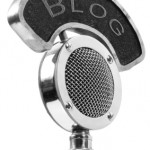 John Palmer and Colin Kaminski join me this week to discuss their new book “Water, A Comprehensive Guide for Brewers”. We discuss the best water for brewing beer, mash pH, residual alkalinity, beer brewing water for extract and all grain brewers, water sources and much more.
John Palmer and Colin Kaminski join me this week to discuss their new book “Water, A Comprehensive Guide for Brewers”. We discuss the best water for brewing beer, mash pH, residual alkalinity, beer brewing water for extract and all grain brewers, water sources and much more.
Download the MP3 File – Right Click and “Save As” to download this mp3 file
[audio:http://traffic.libsyn.com/beersmith/BSHB-70-Water-Book.mp3]
Topics in This Week’s Episode (48:02)
- John Palmer and Colin Kaminski, co-authors of the new book Water: A Comprehensive Guide for Brewers (Amazon Affiliate Link) join me this week to talk about water for brewing beer. John is the author of How to Brew as well as Brewing Classic Styles. (Also Amazon affiliate links). Colin is the brewmaster at Downtown Joe’s Brewery.
- John explains how they both got started on a book about beer brewing water.
- Colin discusses the sources of water including ground water and surface water.
- John tells us what residual alkalinity is and why it is important for managing your mash pH.
- Colin explains mash pH and talks about how it is related to residual alkalinity, the grains bill and mashing.
- John Palmer tells us how to measure and manage the pH of the mash using acids or buffers.
- We talk about the rare case where you may need to raise your pH and how to do that.
- John explains why extract brewers should consider using distilled or RO water when brewing.
- We talk about mash profiles for different beer styles and how they affect the flavor of beer.
- John tells us how you can adjust your water profile to match a particular beer style.
- Colin explains some of the concerns related to commercial brewing water.
- Both guests share their closing thoughts on beer brewing water.
Thanks to John Palmer and Colin Kaminski for appearing on the show and also to you for listening!
Thoughts on the Podcast?
Leave me a comment below or visit our discussion forum to leave a comment in the podcast section there.
Subscribe to the Podcast
Great News! We’ve been featured in the New and Notable podcasts on iTunes. ![]() If you are not using iTunes, you can subscribe using this feed:
If you are not using iTunes, you can subscribe using this feed:
- http://feeds.feedburner.com/BeersmithcomHomeBrewingBlog
And finally, don’t forget to subscribe to the blog and my newsletter (use the links in the sidebar) – to get free weekly articles on home brewing.
Can anyone provide a link for the Hach brewer’s test kit discussed in this podcast? I have searched the Hach website without any results.
I was hoping you might ask them about using 5.2 mash stabilizer. Do you have any thoughts on that type of product for homebrewing?
Thanks for providing this info. As a young aspiring brewer I am always looking for tips. This was my first podcast that I listened to and, while it got a littlle technical for me, I thought it was rather interesting with the inforovided. I look forward to checking out other podcasts.
I like the fact that your guests brought up the fact the brewamith really doesn’t take into consideration that Beersmith doesn’t do well for creating the “perfect ” water recipe. I actually contacted my water company right after I purchased BS to find out what is in our water, but still didn’t realize that much went into beer PRIOR to brewing. Great podcast…. Thanks a lot!!!!!
+1 regarding Nic’s comment
I couldn’t find anything from Hach as well, but here is the info on the LaMotte test kit (Palmer referred to this in the podcast as well):
http://www.lamotte.com/en/browse/7188-01.html
Looks like you can buy it at Northren Brewer. $100 for one w/o a pH meter, or $170 with a pH meter.
+1 more request for info on the Hach test kit. My search for this has also proved unsuccessful.
That said, I’ve listened to the podcast a couple of time already and am working my way through their new book. Both are interesting and have prompted me to do some comparisons of the difference between brews of the same recipe using filtered water and filtered water adjusted to style from the ion concentration recommendations in the Water book and the BeerSmith 2 water profile tool. However, while I am able to test for pH, alkalinity, calcium hardness, total hardness, and chlorine, I’m just guessing ion the actual values of sodium, chloride, and sulfate ion concentrations. I need more than the pool test kit and pH meter.